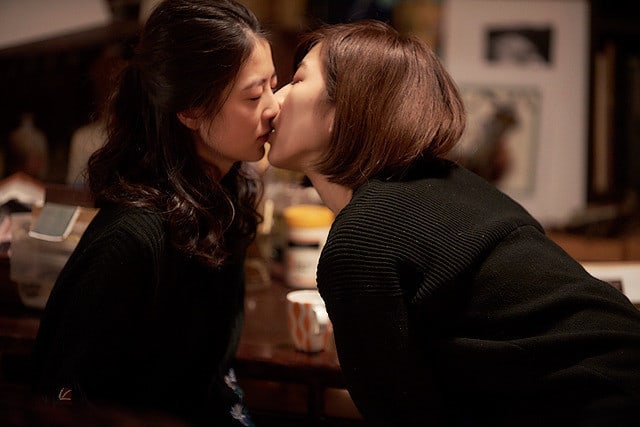
Screenwriter, producer and director Hisashi Saito has been active in the Japanese film industry for more than 28 years, at first primarily as a scriptwriter and now as a director. He’s written scripts for towering contemporary Japanese auteurs such as Shinya Tsukamoto, Hideo Nakata and Ryuichi Hiroko, as well as writing the very first feature (Bicycle Sighs) of J cinema bad boy Sion Sono. In addition, he’s directed six feature films, with Love Dart being the seventh. Of these the thriller-road movie Sunday Drive (2000) and the drama There’s Nothing to Be Afraid Of (2006) are probably the best known. His work is usually contemplative, punctuated by long takes; finely shot, with the latest work being no exception.
Love Dart premiered as a Special Screening at Tokyo’s art house feature film festival FilmEx in November, 2018, drawing strong praise from the audience and critics. As is usual for Saito it concerns people’s relationships and the effect, whether positive or negative, that they have on each other. The film portrays four characters who are troubled by love and sex and follows their attempts to deal with the issues. Yumeka (Kanon Nawata) whiles away her time making art in a studio left to her by her grandmother, though it appears she’s not attached to the art and may not find real value in it. She sleeps with men easily but seems empty of emotion in general. Even more in a shell is her university friend Tomoko (En Nakagami), a clean freak who cannot get involved with men. Yumeka suggests Tomoko have a tryst with their friend Takaya, but Tomoko is naturally less than interested. She does, however, take up Yumeka’s suggestion to take a job at a softcore porn movie theater and this sets of a chain of events the film follows. There she meets Kyoichi (Ryusuke Fujiwara), a young man who prostitutes himself. The thoroughly opposite Tomoko is intrigued.
The project gives actresses Kanon Nawata and En Nakagami plenty of opportunity to shine, which is not surprising as it started in the acting workshop “Actor’s Vision” and developed into a feature from there. Nakagami is particularly powerful in her role of a lost but reflective young woman. Ryusuke Fujiwara also does a fine job for someone appearing in his first film. Director Saito’s long takes, in this piece, may make the pace too slow for some, but they give us plenty of opportunity to ponder the difficulties each person faces. In all, this film is a fine character study well worth watching.
Japanese title: Soranohitomi to Katatsumuri







